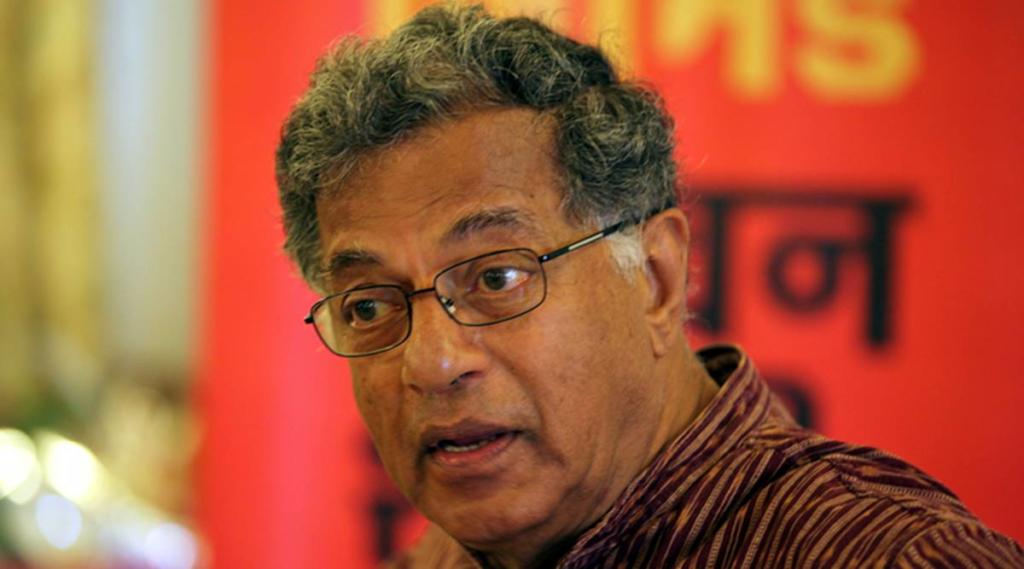Girish Raghunath Karnad, the Karnataka film actor, director, writer, and playwright died yesterday at the age of 81 due to multiple organ failure. His funeral was held in the Kalapalli Electro Dahagrah of Bengaluru without any rituals. While there is a hoard of politicians and actors mourning over his untimely demise, a brief look over his life brings to lights the kind of man he actually was, away from the stardom.
While Girish Karnad’s contribution to the film industry is well known, his involvement with divisive politics of the Left and hatred towards Hinduism and its followers is a lesser known fact. These aspects have been highlighted by the famous writer Shri Sandeep Balakrishna in his article published in Dharmadispach. Sandeep characterizes Girish Karnad as an “outstanding political pamphleteer, artful dodger, fine actor, a mediocre director, and a terrible playwright.” While these are strong words and even may be construed as speaking “ill of the dead”, Sandeep Balakrishna clarified that he isn’t speaking ill but merely telling the truth.
In terms of political ideology, Girish Karnad has been a strong left supporter since the beginning. In most of his compositions, hatred towards Indian culture and improper manifestation of foreign invasions are clear. ‘Tughlaq’, his play based on the life of the Sultan of Delhi, Mohammad Bin Tughlaq is the earliest of such compositions. The play had eulogized the genocidal Muslim ruler, who is well known for his imbecilities throughout history (one of which incidentally got him killed). In the words of Sandeep Balakrishna, “Karnad drew a parallel between Tughlaq and Jawaharlal Nehru by characterizing both as misunderstood geniuses who were denied their rightful place in history by the fascist forces of orthodox and regressive Brahmanism.” Thereafter, he had also published a play titled, ‘Tipuvina Kanasugalu’ (The Dreams of Tipu Sultan), which was essentially used to peddle the anti-Hindu propaganda, meant to popularize “Tipu Jayanti” amongst the citizens in Karnataka. The play worshipped Tipu Sultan, the man who was responsible for massacring thousands of Hindus and causing large scale temple destruction.
The political pamphlet in the name of Tipuvina Kanasugalu was actually is in furtherance to the Karnataka Chief Minister Siddaramaiah’s communal agenda. Girish Karnad and Siddaramaiah had collectively taken several efforts to peddle their anti-Hindi hate in the state. The CM had sought to criminalise the beliefs of some Hindus and Girish had held his hand every step of the way. The anti-superstition bill which was against the cultural practices of some Hindus had Girish’ brain behind it. In the name of atheism and socialism, the two have been hostile towards the Hindu traditions and heritage, while clearly favoring others.
However, the man wasn’t just a Hindu hater due to his beliefs, he was an opportunistic Hindu hater. During the Datta Peeta movement, he had called upon an anti-communal campaign, which he later abandoned when the cause stopped suiting him. Similarly, the biggest propagator of the anti-superstition bill, he showed no reservation in offering puja to Goddess Chamundeshwari during the Dasara festival. The customs, practices, and rituals involved in the Dasara festivities firmly come under the anti-superstition bill.
His opportunistic nature was reinforced in 2014’s Bangalore Literature Festival when Karnad was supposed to pay shraddhanjali (tributes) to writer and critic Ananthamurthy. He did so by labeling Ananthamurthy’s works as “second-rate”, and by characterizing his most celebrated work, Samskara, as “very baseless” and “shallow”. Thereafter, he stated, “He (Ananthamurthy) loved a seat but was not given. He pursued a (Rajya Sabha) seat like mad.” Well, one has a right to their personal opinions, what is intriguing here is that in all the long years, since Ananthamurthy was alive, Karnad didn’t mutter as much as one negative word about the former’s work and suddenly after his death, he seems to be unable to keep his disdain to himself. Perhaps the fact that Karnad was given the opportunity to act as the protagonist in celebrated work Samskara, thus giving a major push to his career was the reason for his silence.
As expected, Kanad was publicly opposed to the BJP and the Sangh Parivar and yet, he was not against accepting the directorship of the Nehru Centre and the post of minister of culture in the Indian high commission in London under Vajpayee’s government. Moreover, ahead of the 2014 elections, he had referred Narendra Modi as a “dangerous man”, but in July 2014, he decided to certify that Modi has “provided good governance”. Similarly, being against the “fascist” government did not make him return his award during the Award Wapsi charade in 2015.
Girish Karnad had brought shame to his country through his distortion of Hindu mythology, Indian history, culture, and traditions. Moreover, this public discourse has been completely centered around Girish’s personal affiliations, and not due to some social cause. It boggles one’s mind when realized that in an effort to fulfill his ambitions, Girish Karnad has indoctrinated much hatred for the Hindus and has downright discriminated against their rights and practices, under the label of ‘secularism’.
